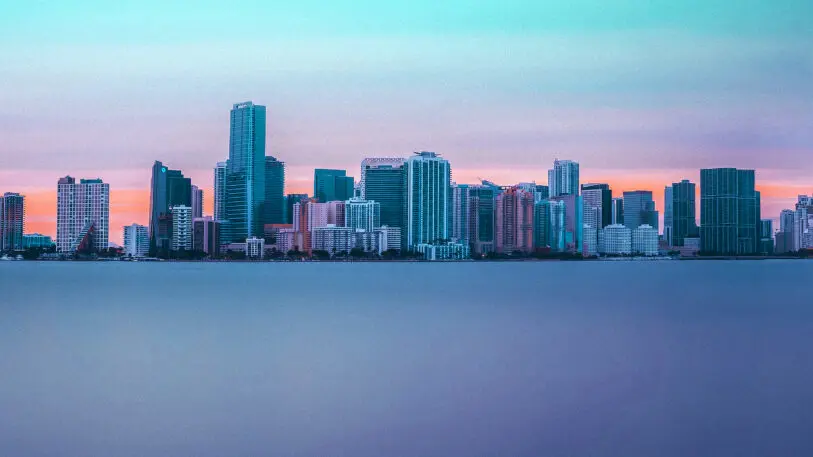Impacts of extreme heat on cities have ranged from disruptive to devastating in recent years. In 2017, planes in Phoenix couldn’t physically take off in 120-degree heat. In Washington, D.C., and London, metro and tram tracks have melted. And during the pandemic, as people spent more time outside, even public health took a hit, as COVID-19 testing was shut down in areas of D.C. and New Jersey because the heat was too dangerous for those lining up in the sun.
While many are aware of heat risks, they’re perhaps not taken as seriously as more visible climate disasters like hurricanes and floods, leading many experts to call heat the “silent killer.” A 2020 study suggests that it contributes to the deaths of 5,600 people every year. Data on such deaths is sparse, since they’re often attributed to other conditions, but severe heatstroke can lead to coma or even death. In an effort to raise awareness and put into place concrete actions on local levels to combat heat’s effect on human health and economies, three cities are appointing chief heat officers, who’ll also share best practices with other cities in their regions.
Miami was an apt place to start: Known for its vulnerability to sea-level rise, the coastal city broke its own heat records last year, reaching a June high of 98 degrees, the hottest ever for that month. “It’s killing more people than any other climate-driven hazard in the U.S.,” says Kathy Baughman McLeod, senior vice president and director of the Adrienne Arsht-Rockefeller Foundation Resilience Center, a nonprofit that works with cities around the world to fund climate-resilience solutions. It’s under the group’s Extreme Heat Resilience Alliance program that the mayors of Miami-Dade, Athens, Greece, and Freetown, Sierra Leone, agreed to appoint CHOs (the organization helps fund the position). Miami-Dade’s mayor, Daniella Levine Cava, was the first to announce the role. Jane Gilbert, who worked for many years on the city’s climate resilience initiatives, is the first person to hold a position of this kind in the world.

Though many of these solutions are well-known and already underway—via programs like Million Trees Miami—they’re often not sufficiently coordinated or well-funded. Gilbert will spend her day-to-day coordinating the city’s response to rising temperatures, working directly with the chief resilience officer (her former role) and the 13 staff members at that office, many of whom she already knows. While she and that staff will do the research and “groundwork,” the implementation of each element will be delegated to the relevant governmental agency—such as the city’s Parks & Recreation Department for the tree canopies and the Department of Transportation for cooler pavements. “Acting on heat is interdepartmental and cross-agency,” she says. Those agencies will provide much of the funding for the implementation, though Gilbert is also currently applying for additional grant funding.
One major task she’ll take on is prioritizing the communities most in need. Heat has a disparate impact on low-income and minority populations, often because they work outdoors, have preexisting conditions, lack access to healthcare and private vehicles, and live in substandard housing. “The people least responsible for it are bearing the brunt of it,” Baughman McLeod says. Gilbert also wants to retrofit substandard housing with “weatherizing” tools to help protect residents in heat waves, and to put standards in place that afford outdoor workers cooler conditions and frequent breaks. Going forward, she hopes for the city to start planning its systems and structures through “a lens of heat.”
Already at great risk for damage from hurricanes, Miami has a preexisting “culture of preparation” around those disasters; Baughman McLeod says this mentality needs to be extended to heat, which is often overlooked as a peril because its destructive scenes aren’t as dramatic. “Heat doesn’t rip the roof off of your house,” she says. Part of the CHO role is to raise awareness, treating heat with the same gravity as hurricanes.
Whatever information Gilbert gathers, the idea is to share it with other cities in the U.S. That’ll be the formula for the two other world cities appointing chief heat officers, Athens and Freetown, which will act as test areas on their continents. Both cities have been particularly impacted by extreme heat. High temperatures in Athens are affecting its agriculture and vital tourism industry; Freetown is experiencing destructive fires.
Though the CHO title is new, none of these cities is the first to take on the issue: New York is currently funding air conditioners for eligible residents; Los Angeles counties are fitting cool roofs and pavements; Phoenix is redesigning its most affected low-income neighborhoods—cool roofs reportedly won’t work in the Arizona city due to interfering dust storms. But labeling the role “chief heat officer” is smart branding—and not just because of the obvious association with the Miami Heat. (Perhaps they could join forces with the local basketball team in the future to help with outreach, Gilbert suggests with a laugh.) It shows the public that heat is now an explicit city priority, especially as global warming continues to increase. “It’s just going to get hotter. It’s going to sneak up on us,” Baughman McLeod says. “We are not cooling this planet.”
Recognize your brand’s excellence by applying to this year’s Brands That Matter Awards before the early-rate deadline, May 3.
